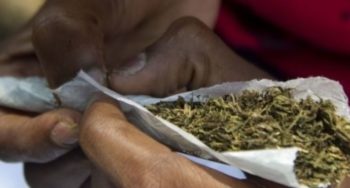
“The Youths are the Leaders of Tomorrow” is a commonly used phrase to remind and inspire the young ones in the society to prepare for the future. That axiom imposes a responsibility on essentially two parties – the youths who are the leaders of tomorrow and the adults who are the leaders of today. The leaders of today have a responsibility to properly equip the youths for leadership tomorrow. The youths in turn must be willing and ready intellectually, mentally and emotionally for the enormous responsibility that is to come. Many times when the discourse on leadership is initiated, it is easily construed using political optics. Leadership is not always political and not essentially position based. Leadership is simply about influence and productivity. It is practically impossible to be productive and not wield some level of influence. The more value you add the bigger your influence. To that extent, a productive population can be regarded as a population of leaders. But true leadership requires character, which is a combination of many worthy virtues. Imagine having true leaders in every aspect of our national life – economy, religion, social, politics, education, sports. This country will become an Eldorado; sadly the leaders of today have failed us in this regard. Whilst many look to the youths to lead Nigeria to the Promised Land, the troubling query has been on the preparedness of this population. With the increase in unwholesome vices the youths seem to be grooming to become the burden of tomorrow than being the leaders. A major vice that is on the rise in Nigeria is the use of hard drugs.
Drug abuse is not a new phenomenon. The curiosity of humans and the quest to do the unthinkable have lured many into substance(s) that will aid their transition into the arcane realm they desire. The former DG of National Drug Law Enforcement Agency, Mr.OtunbaIpinmisho once stated that 40% of the Nigerian youth population are currently engaged in substance abuse. In simple terms four in every ten Nigerian youths are liable to become less productive as a result of substance abuse. The acceptance level is worrying; dangerous and detrimental to the future of this country. At a plenary session of the senate it was revealed that nearly 3million syrup of codeine – a highly abused cough syrup – is consumed daily in the northern part of Nigeria. Apart from the abuse of the cough syrup, many other drugs have become experimental supplies for these young ones. According to the United Nations Office on Drugs and Crime, modes of drug intake are through smoking (cannabis), inhalation or sniffing (organic solvents, cocaine, heroin), chewing (local leaves or ‘Zakami’) and licking or swallowing (psychotropic drugs). Some even go as far as inhaling the noxiousstench from soak-aways.
This bad behaviour is further heightened by the prevalence of deplorable lyrics of popular songs and the videos encouraging same. Additionally, the artistes usually take to social media to display wealth, women and drugs further portraying the “street culture” as they want to make us believe. Many gullible young Nigerians have now become addicted to this trend, destroying their lives and that of many others. Gone are the days when vices like these are synonymous with the male gender. More young girls are increasingly taking to this mania all in the name of being youthful and funky.
What is clear is that the leaders of today have not done enough to safeguard the leaders of tomorrow from becoming wayward. Many of these young ones are becoming junkies in their homes and even on the street. A walk inIkeja at night will paint a better picture of this danger. In one encounter, I recall seeing two men greeting each other. The first one said “dead man walking”, the other responded by iterating the same phrase. While sane human beings would rather say “good evening”, junkies would say “dead man walking” because they realise their predicament, only that they do not possess the solution. This scourge increases with the growth in unemployment and the depression that follows. Many take to drug abuse as a form of escapism, while others are influenced by peer pressure and soon they become addicted.
Changing themounting trend requires a concerted effort from everyone including government, teachers, parents and religious institutions. To ignore this gathering disaster is to obliviously breed a generation of youths that will become burdens rather than lead the nation into its deserving position in the comity of nations. The National Orientation Agency needs to urgently activate a nationwide sensitisation programme against drug abuse and hard drugs. Other government agencies including NDLEA and the ministry of health must maximise relevant provisions to address this menace. The laudable reaction would be for Nigerians to see it as a national emergency that threatens the workforce of the future.
It is encouraging that the senate has shown interest and looking to explore legislative avenues to address the menace. It is now left to the executive arm to take steps including setting up rehabilitation centres to take care of already affected population, and equipping the NDLEA to fight this emergency. If we do not address these issues with the seriousness it deserves now, the future of our nation will be chockfullof wasted and unproductive burdens.